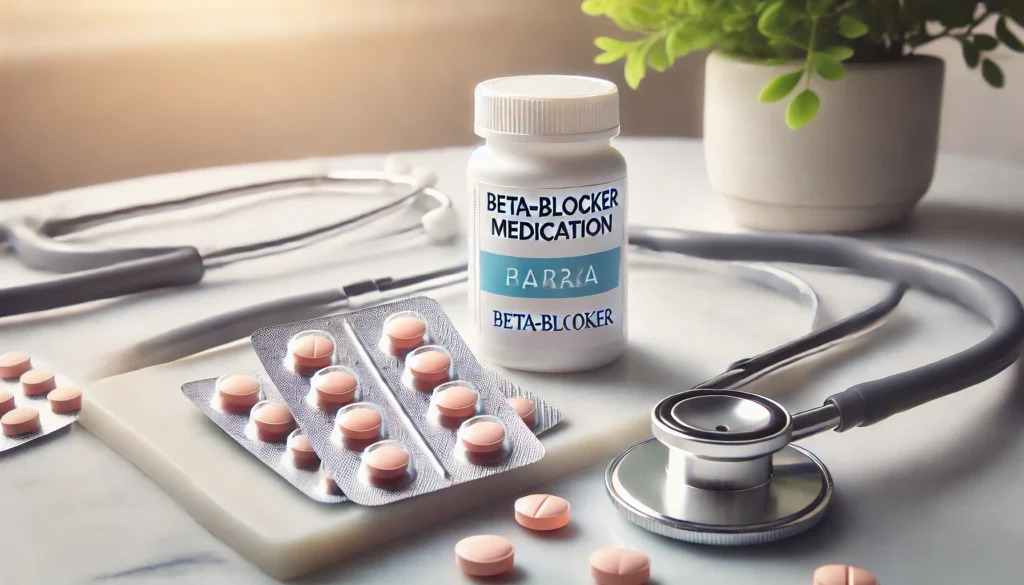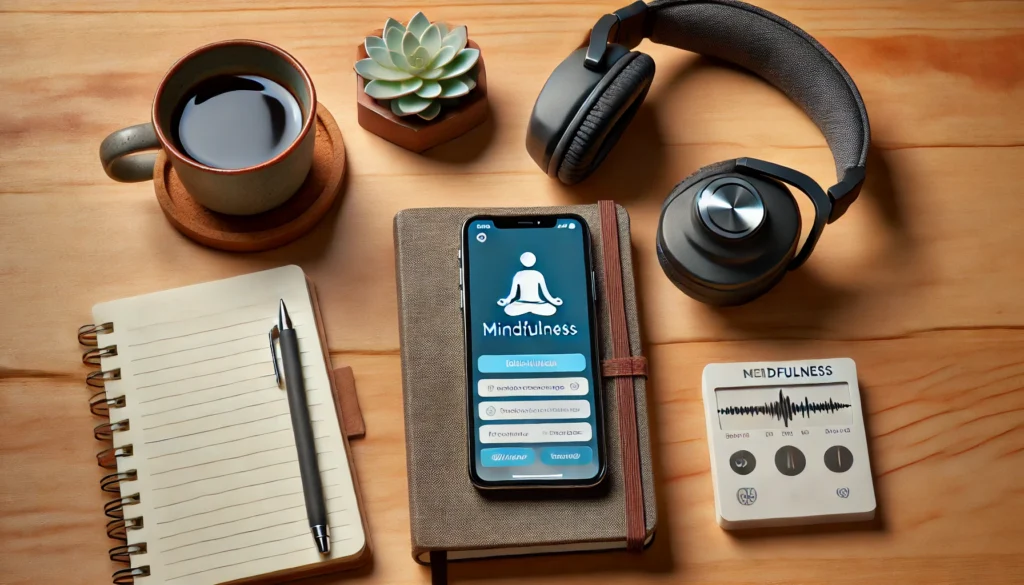Anxiety is a common mental health issue. It can be debilitating, affecting every aspect of life.
Quick relief from anxiety symptoms is often necessary. It can help individuals regain control and function effectively.
This article explores the top quick relief medications for anxiety. It provides a comprehensive overview of the various options available.
We delve into how these medications work, their potential side effects, and considerations for choosing the right one. We also discuss the latest scientific research and trends in anxiety treatment.
Our aim is to provide accurate, engaging, and practical advice. This information is based on the latest scientific research and trends.
Whether you’re a health and wellness coach, a science journalist, or a biohacker, this article is for you. It offers insights into optimizing mental and physical health through the latest advancements in medication and biohacking techniques.
Join us as we navigate the complex world of quick anxiety relief medication. Let’s empower ourselves with knowledge and make informed decisions about our mental health.
You may also like: Top Supplements to Alleviate Anxiety Naturally

Understanding Anxiety and the Need for Quick Relief
Anxiety is more than mere worry. It’s a condition marked by persistent feelings of fear, dread, and unease. Millions suffer worldwide, with symptoms disrupting daily routines and reducing quality of life.
Quick relief is crucial. When anxiety strikes, swift action can prevent escalation. Such relief allows individuals to re-engage with daily activities.
Understanding available medications helps individuals make informed choices. Various options exist, each designed to target anxiety’s immediate symptoms.
Different medications work in different ways. Some calm the mind, while others address physical symptoms. Knowing their distinctions aids in selecting the most effective treatment.
Factors to consider include:
- The severity of symptoms
- The potential for side effects
- Interactions with other medications
Medications should not be the sole strategy. A holistic approach, combining therapy and lifestyle changes, often proves most effective. By comprehending the nuances of quick relief medications, one can better navigate the treatment landscape.
The Impact of Anxiety on Daily Life
Anxiety doesn’t just affect the mind; it impinges on physical well-being too. It can lead to headaches, fatigue, and a racing heart.
Social interactions may become challenging. Anxiety can create a barrier, making connections with others daunting.
Productivity suffers as a result. When anxiety takes hold, concentration wanes. Tasks that once seemed easy become overwhelming. Addressing these impacts is vital for maintaining day-to-day functioning and overall well-being.
When Quick Relief Becomes Essential
Certain situations demand immediate anxiety relief. For example, a panic attack can occur unexpectedly. This can be a frightening experience, requiring quick intervention to manage symptoms.
Public speaking or high-stress scenarios can trigger acute anxiety. Facing these moments unprepared can be crippling. Quick relief medications provide the support needed in such instances.
Maintaining peace of mind in emergencies is crucial. Being equipped with the right tools, including knowledge and medication, ensures that anxiety does not dictate one’s actions. Quick relief options empower individuals to regain calm and control swiftly.
Types of Quick Relief Anxiety Medications
Medications for anxiety come in various forms, providing diverse treatment options. Quick relief medications are preferred for their immediate impact on symptoms. They help mitigate both mental unrest and physical manifestations of anxiety quickly.
Several classes of drugs are commonly used. Benzodiazepines offer rapid relief, while SSRIs and SNRIs serve both immediate and long-term purposes. Beta-blockers focus on controlling physical symptoms without addressing the mental aspects directly.
These medications vary in how they operate. Some calm neurological activity, while others adjust neurotransmitter levels or inhibit certain bodily responses. Knowing this can inform a better understanding of their utility and limitations.
Potential choices include:
- Benzodiazepines
- SSRIs and SNRIs
- Beta-blockers
Selecting the right medication involves weighing benefits and potential side effects. Consulting with a healthcare provider is crucial to ensure the best match for individual needs. Given the complexity and variety of anxiety presentations, a personalized approach enhances treatment effectiveness.
Benzodiazepines: Fast-Acting Anxiety Relief
Benzodiazepines are famous for their quick action in alleviating anxiety. They target the central nervous system, promoting a calming effect that reduces symptoms almost immediately.
Medications like diazepam and lorazepam fall under this category. They are typically prescribed for short-term relief due to their high effectiveness and the speed at which they work.
However, caution is necessary. Benzodiazepines can lead to dependency if used over extended periods. They also pose risks of side effects like drowsiness and dizziness, affecting daily functioning.
For many, the immediate relief offered outweighs potential downsides. Used prudently, they serve as a vital tool for combating acute anxiety episodes. Thus, benzodiazepines remain a trusted option when fast intervention is essential.
SSRIs and SNRIs: Long-Term Management with Quick Benefits
Selective serotonin reuptake inhibitors (SSRIs) and serotonin-norepinephrine reuptake inhibitors (SNRIs) are standard for anxiety management. While renowned for long-term efficacy, their initial benefits shouldn’t be overlooked.
These medications adjust brain chemistry, particularly serotonin and norepinephrine levels. This adjustment helps stabilize mood over time, but some people experience initial symptom relief within days.
Drugs like fluoxetine and sertraline fall into these categories. They are favored for their dual-role capability, managing chronic anxiety while also addressing initial spikes.
Side effects are typically milder than benzodiazepines, making them suitable for long-term use. Commonly reported effects include nausea and sleep changes, yet they often subside with continued use.
Overall, SSRIs and SNRIs provide a balanced approach. They offer the promise of sustained relief, appealing to those experiencing both immediate and persistent anxiety.
Beta-Blockers: Managing Physical Symptoms of Anxiety
Beta-blockers, traditionally used for heart conditions, have unique benefits in anxiety treatment. They counteract the body’s “fight or flight” response, lessening physical anxiety symptoms like a rapid heartbeat.
Common choices include propranolol and atenolol. They are often used for situational anxiety, such as public speaking, because they target physical symptoms without influencing mental states directly.
Beta-blockers don’t carry the risk of addiction associated with benzodiazepines. However, possible side effects, like fatigue or dizziness, should be considered, especially with chronic use.
For those whose anxiety manifests primarily through physical symptoms, beta-blockers offer targeted relief. They work effectively as a complementary tool alongside therapies addressing the emotional facets of anxiety.

Risks and Considerations of Anxiety Medications
When considering anxiety medications, understanding the associated risks is crucial. While these medications offer relief, they come with potential side effects and challenges.
Each medication type presents its own set of risks. Benzodiazepines, for instance, carry a high risk of dependency. Long-term use can lead to physical and psychological reliance.
SSRIs and SNRIs, although generally safer, may cause side effects like sleep disturbances and gastrointestinal issues. These often subside over time but can be distressing initially.
Users should be aware of possible interactions with other medications or substances. Alcohol, for example, can amplify sedative effects, posing additional risks.
Considerations when taking anxiety medications include:
- Dependency and addiction potential
- Possible withdrawal symptoms
- Side effects like drowsiness or nausea
- Interactions with other drugs or alcohol
- The necessity of lifestyle adjustments
By recognizing these factors, individuals can approach anxiety treatment more responsibly. Consulting healthcare professionals regularly ensures that treatment remains safe and effective.
Understanding Side Effects and Risks
Every anxiety medication has its side effects, which vary in intensity and frequency. Benzodiazepines might cause drowsiness or coordination difficulties, affecting daily activities.
SSRIs and SNRIs often come with initial side effects, such as nausea or sleep changes. Though these are usually temporary, they can be challenging to manage.
Individuals may also experience withdrawal symptoms when discontinuing medications, especially benzodiazepines. It’s crucial to taper off under medical guidance to minimize risks.
Understanding these side effects helps in making informed choices about medication use. It also underscores the importance of follow-up appointments with healthcare providers.
Avoiding Dependency and Withdrawal
Dependency is a significant concern with certain anxiety medications, particularly benzodiazepines. Users may develop a tolerance, necessitating higher doses for the same effect.
To prevent dependency, healthcare professionals often recommend short-term use of benzodiazepines. Monitoring and adjusting dosage regularly can help mitigate risks.
Withdrawal symptoms can arise if medications are stopped abruptly. Symptoms might include increased anxiety, insomnia, or physical discomfort.
Gradually tapering off medication under medical supervision is vital. This approach minimizes withdrawal effects and prevents sudden spikes in anxiety symptoms.
Awareness of these issues promotes responsible medication management. It also highlights the importance of a supportive treatment environment, reinforcing the therapeutic process.
Alternative and Complementary Treatments
Exploring alternatives to pharmaceuticals can provide additional relief for anxiety. Many individuals turn to complementary treatments to enhance their overall well-being.
Herbal supplements, for instance, offer a natural approach. Options like valerian root and passionflower are popular for their calming effects.
Over-the-counter products, such as L-theanine and magnesium, can also help reduce anxiety. These supplements are generally safe but should be used under guidance.
Complementary therapies have gained traction for their holistic benefits. Practices like yoga and tai chi combine physical movement with mindfulness, addressing both body and mind.
- Yoga: Enhances flexibility and promotes relaxation
- Meditation: Cultivates inner calm and focus
- Acupuncture: Balances energy flow to alleviate tension
- Aromatherapy: Uses scents to reduce stress and anxiety
These methods offer diverse ways to manage anxiety naturally. They focus on long-term wellness rather than just immediate symptom relief.
Natural Supplements and Over-the-Counter Options
Natural supplements are widely embraced for managing anxiety symptoms. Many people prefer these options due to their perceived safety.
Herbs like kava and chamomile are noted for their relaxing properties. These herbs often come in tea or capsule form and can be easily integrated into a daily routine.
Over-the-counter supplements, including GABA and omega-3 fatty acids, support mental health. They are typically easy to find and simple to use.
While generally safe, it’s crucial to consult a healthcare provider before starting supplements. This ensures they do not interfere with other medications or conditions.
Lifestyle Changes and Biohacking Techniques
Lifestyle adjustments can have a significant impact on anxiety levels. Simple changes often lead to notable improvements in mental health.
Regular exercise is a proven method to reduce stress. Activities like walking or cycling can increase endorphins, promoting a sense of well-being.
Biohacking techniques like optimizing sleep patterns and dietary adjustments can enhance mental clarity. Maintaining a balanced diet and regular sleep schedule are foundational for reducing anxiety.
These lifestyle changes, combined with biohacking methods, empower individuals to take control of their mental health. They focus on boosting overall vitality and resilience against stress.
The Role of Therapy and Counseling
Therapy and counseling are crucial for addressing anxiety. They provide a safe space for individuals to explore their thoughts and emotions.
Cognitive-behavioral therapy (CBT) is particularly effective. It helps individuals identify and change negative thought patterns that fuel anxiety.
Counseling offers support and guidance. It empowers individuals to develop coping strategies and resilience.
Therapeutic approaches vary widely to suit individual needs. Some benefit from group therapy, gaining support through shared experiences.
Others prefer one-on-one sessions. This allows for a personalized approach in a confidential setting.
The integration of therapy with medication often yields the best results. It combines immediate relief with long-term solutions.

Navigating the Future of Anxiety Treatment
The future of anxiety treatment is promising. Research continues to uncover novel approaches and therapies.
Advancements in neuroscience provide new insights. These discoveries pave the way for innovative medications and treatments.
Emerging trends focus on holistic approaches. Combining traditional methods with alternative therapies shows potential.
Key developments to watch include:
- Neurofeedback and brain stimulation techniques
- Integration of virtual reality into therapeutic settings
- The rise of personalized and precision medicine
The landscape of anxiety treatment is evolving. Understanding and addressing the diverse needs of individuals is crucial.
Latest Research and Emerging Trends
Recent studies explore the neurobiology of anxiety. These findings enhance our understanding of brain mechanisms involved.
Innovative therapies are being developed. Researchers are investigating the efficacy of psychedelics and plant-based treatments.
Integrating technology in mental health care shows promise. Virtual reality therapies, for instance, help patients face and manage anxieties in controlled environments.
As science progresses, so does our approach to treating anxiety. These developments highlight a shift towards more personalized and effective interventions.
Personalized Medicine and Technology’s Role
Personalized medicine tailors treatments to individual needs. It considers genetic, environmental, and lifestyle factors.
Technology plays a pivotal role in advancing personalization. AI and machine learning assist in predicting treatment responses.
Digital health tools offer support outside clinical settings. They provide real-time monitoring, feedback, and intervention.
The future of anxiety treatment lies in these innovations. With continued research, personalized approaches promise better outcomes for patients. Through tailored care, individuals can achieve more significant relief and understanding.
Making Informed Decisions About Anxiety Medication
Informed decisions are key when selecting anxiety medication. Many factors influence the choice of treatment.
Understanding the options available is essential. Weighing benefits against potential risks and side effects is crucial.
A few considerations include:
- The specific symptoms you experience
- Any existing health conditions or medications
- Your personal and lifestyle preferences
Educating yourself is vital in the decision-making process. Stay informed about advancements in anxiety treatment.
Working closely with a healthcare professional ensures personalized advice tailored to your needs. This collaboration fosters better health outcomes and confidence in your treatment plan.
Consulting Healthcare Professionals
Professional guidance is invaluable when considering anxiety medication. Healthcare providers offer expertise that is vital in selecting an appropriate treatment.
Consultation involves sharing your medical history and symptoms. Openness ensures a thorough assessment and effective treatment plan.
Your doctor will evaluate the best options. They will consider both immediate relief needs and long-term management strategies.
Regular check-ins enable ongoing assessment. They help to adjust treatment as needed and address any concerns promptly.
Trust and communication with your healthcare provider are essential. They empower you to make informed choices and optimize mental health outcomes.
Questions to Ask Before Starting Medication
Being prepared with questions enhances understanding. Here are critical queries to consider:
- What are the expected benefits and side effects of this medication?
- How long before I notice improvements?
- Are there lifestyle modifications I should incorporate?
Clarifying these points aids in setting realistic expectations. It also enhances your engagement in the treatment process.
Understanding potential interactions with other drugs is crucial. Discussing all current medications and supplements with your healthcare provider is necessary.
Ultimately, asking the right questions fosters informed decisions. It ensures you’re equipped with the knowledge to manage your anxiety effectively.
Conclusion and Key Takeaways
Addressing anxiety requires a comprehensive and informed approach. Quick anxiety relief medications offer essential support for acute symptoms but are one piece of the puzzle.
Understanding the variety of options, including benzodiazepines and complementary therapies, allows you to personalize your anxiety management plan. Knowledge of the risks and benefits of each treatment aids in making sound choices.
Consultation with healthcare professionals ensures that your treatment is safe and effective. A balanced approach, combining medication with lifestyle changes and possibly therapy, maximizes the chances of long-term relief and overall mental well-being.
Further Reading:
Drugs.com: Anxiety Medications
Healthline: Which Drugs Treat Anxiety Disorder?
Verywell mind: Anti-Anxiety Medication and Other Coping Strategies
Important Note: The information contained in this article is for general informational purposes only, and should not be construed as health or medical advice, nor is it intended to diagnose, prevent, treat, or cure any disease or health condition. Before embarking on any diet, fitness regimen, or program of nutritional supplementation, it is advisable to consult your healthcare professional in order to determine its safety and probable efficacy in terms of your individual state of health.
Regarding Nutritional Supplements Or Other Non-Prescription Health Products: If any nutritional supplements or other non-prescription health products are mentioned in the foregoing article, any claims or statements made about them have not been evaluated by the U.S. Food and Drug Administration, and such nutritional supplements or other health products are not intended to diagnose, treat, cure, or prevent any disease.


